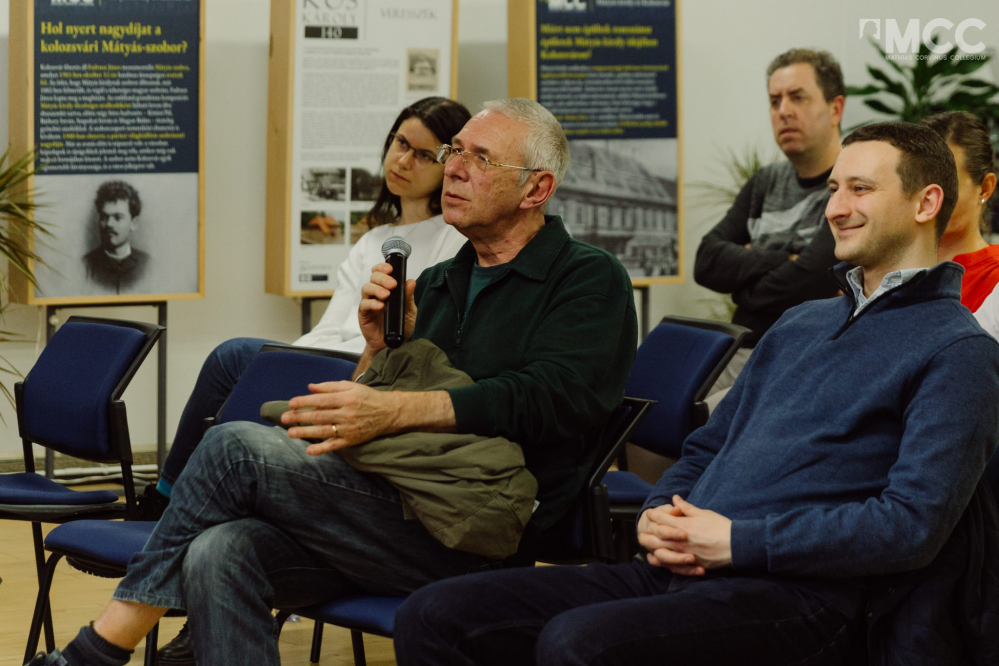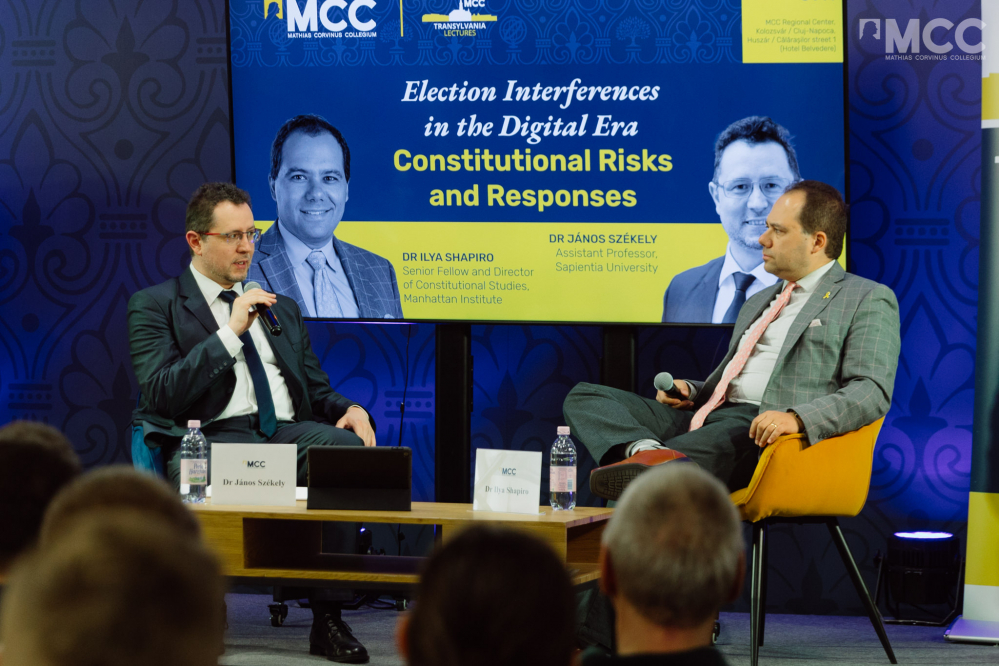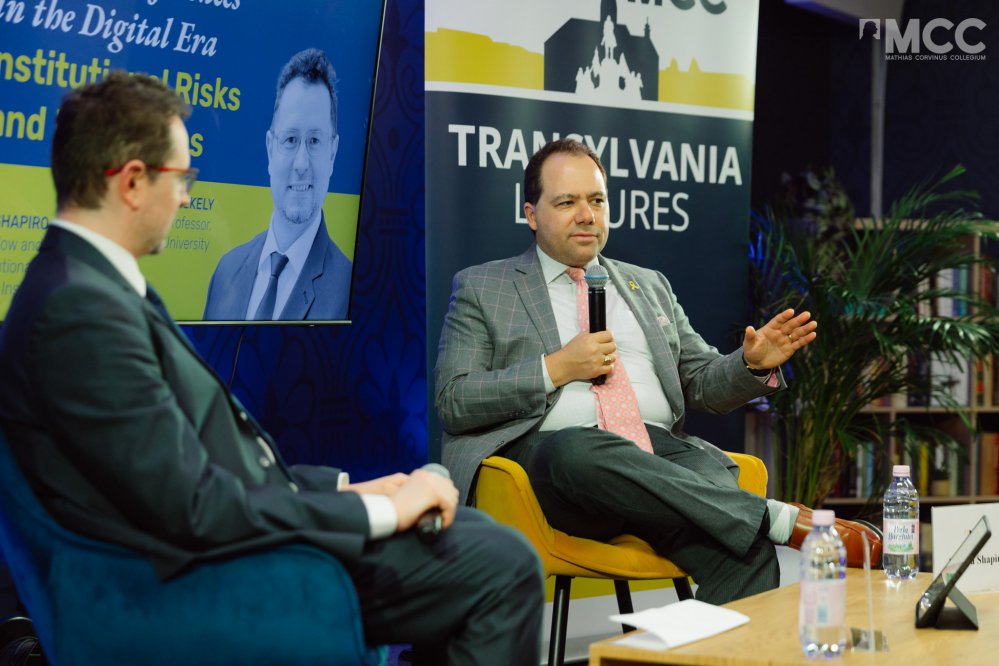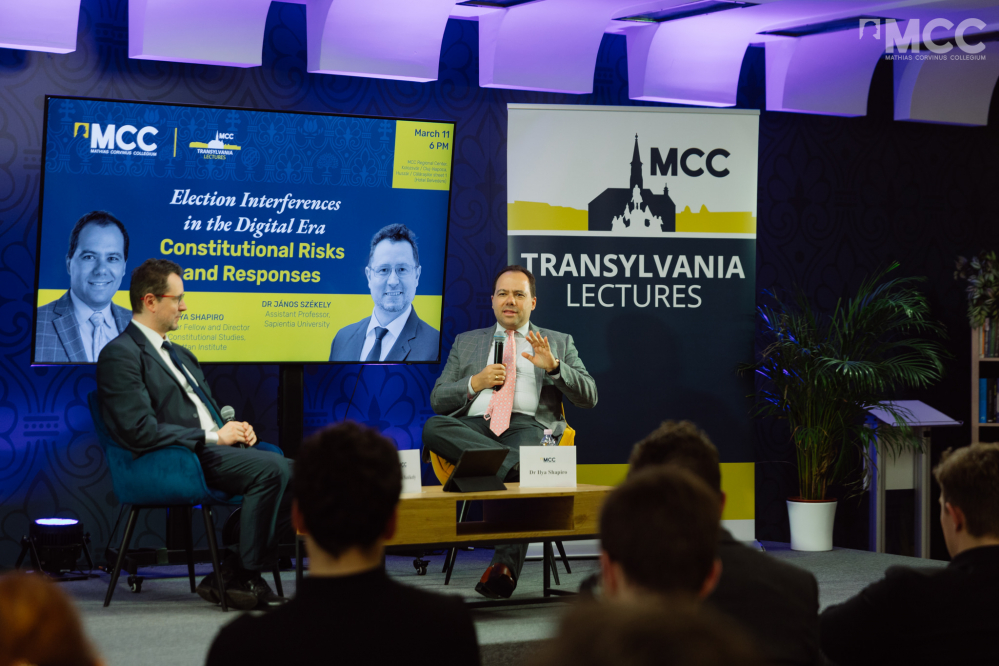Reading time: 4 minutes
Digital media is inevitably shaping modern elections, says Dr Ilya Shapiro, the latest guest of the Transylvania Lectures series. On March 11, 2025, the Transylvania Lectures series hosted a riveting discussion on election interference and the constitutional risks and responses associated with it, featuring Dr. Ilya Shapiro, a senior fellow and director of constitutional studies at the Manhattan Institute, and Dr. János Székely, assistant professor at Sapientia University.
The intersection of technology, law, and national sovereignty has never been more scrutinized than in today’s digital landscape. The event, held at the MCC Center in Kolozsvár/Cluj, dissected the evolving challenges posed by foreign influence campaigns, digital platforms, and legal frameworks that seek to safeguard electoral integrity while upholding democratic principles.
The Impact of Digital Influence
Dr. Ilya Shapiro emphasized the inevitable role of digital media in shaping modern elections. He stated that, just like newspaper articles can influence elections, so can social media, since both mediums transmit information. He also added: “You have micro-targeting of voters on Facebook, on Instagram, on TikTok." However, he pointed to growing concerns about foreign involvement, particularly the use of bots and misinformation campaigns, such as those seen in the 2016 U.S. election. "The perception of outside interference leads to a lowering of public confidence in the integrity of the electoral process," he warned.
TikTok, in particular, has become a focal point of legislative and judicial scrutiny, with the U.S. Supreme Court banning the app over national security concerns. Similarly, Romania has faced its own digital election controversy, with the Constitutional Court annulling the first round of its 2024 presidential election due to alleged foreign interference.
Balancing Security and Free Speech
One of the central dilemmas discussed was the tension between combating election interference and preserving free speech. "I think transparency, sunlight, has to be the solution," Dr. Shapiro argued. "If some government organ comes in and says, ‘this information is okay, that information is not okay’—well, it’s the government deciding what information is acceptable, and that’s dangerous."
Romania’s government has proposed stricter regulations on online media, particularly regarding fake news. This raises concerns about how such measures could impact freedom of expression. "In the American legal tradition, we don’t think about balancing interests when it comes to free speech," Dr. Shapiro explained. "We have a very high level of protection in the First Amendment. And to overcome that, the government has to have a compelling interest and narrowly tailor the law to advance that interest."
Is Romania in a Constitutional Crisis?
A key moment during the discussion was the breaking news that the Romanian Constitutional Court had officially barred presidential candidate Călin Georgescu from the race. This decision echoed a similar ruling from the previous year, when another candidate, Diana Șoșoacă, was disqualified for making statements deemed incompatible with Romania’s constitutional order and international commitments.
"That makes me really uncomfortable," Dr. Shapiro responded. "A vague standard allowing courts to disqualify candidates based on speech is concerning.” According to him, disqualification is acceptable when it stems from objective reasons, such as someone having a criminal record, but when the basis of said disqualification lies within factors such as the ‘appropriateness’ of political statements, the situation becomes much more questionable.
Dr. János Székely provided context, explaining that the Romanian Constitutional Court holds the power to validate or invalidate elections based on their fairness. In this case, the Court ruled that the first round of voting was compromised by foreign influence, thereby invalidating the entire election process.
AI and the Future of Electoral Integrity
The conversation also delved into the risks posed by artificial intelligence, particularly the emergence of deepfakes. "If someone creates a very realistic video of a candidate saying something harmful—especially right before an election—there might not be time to correct it. I don’t know what the solution is," Dr. Shapiro noted.
With generative AI playing an increasing role in content creation, concerns over electoral manipulation are mounting. Dr. Shapiro acknowledged that AI’s potential for misinformation could necessitate new legal frameworks.
The debate underscored the broader challenge of safeguarding democratic institutions in an era of rapid technological change. As Romania grapples with election controversies and the U.S. continues to refine its approach to digital influence, the conversation remains far from settled.
With the second round of Romania’s presidential election rescheduled for May, all eyes remain on the evolving legal and political landscape. As the world continues to navigate these unprecedented challenges, transparency, legal clarity, and constitutional safeguards will be critical in preserving electoral integrity.




